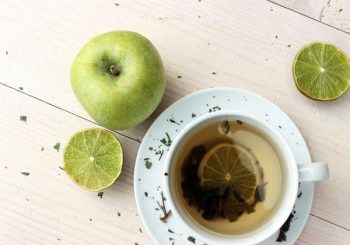Staff Writer for Wake Up World
We’ve long known the health benefits of fruits and vegetables, but research shows that the flavonoids found in these foods, and others, have protective powers that are greater than we realized.
What Are Flavonoids?
Flavonoids are a natural group of phytonutrients found in vegetables, fruits, tea, wine, barks, roots, stems, grains, and flowers. They are a class of plant secondary metabolites with a polyphenolic structure and exist in plants for many biological functions. Flavonoids give plants their pigments, especially those found in flowers, but they also exist to help plants fight microbes, act as UV filters, and act as detoxifying agents. Additionally, they assist with drought resistance, freezing tolerance, and heat acclimatization. (1)
Researchers have studied flavonoids and their different subcategories to see if they play a role in protecting humans from disease, and the results are positive. Some flavonoids have anti-inflammatory activity and inhibit the COX enzyme that promotes prostaglandins, which are responsible for inflammation. Other flavonoids are shown to rid the body of free radicals. (1) The extent of the effects of free radicals are not fully understood, but they seem to damage cellular membranes. This leads to a change in pressure, which in turn leads to cellular swelling and, eventually, cellular death. These attract inflammatory mediators, which translates to a general inflammatory response and eventually tissue damage. (1) In order to protect against this, the body uses internal scavenging compounds, and flavonoids seem to add to these compounds. (2)
Additionally, flavonoids modulate enzymes, have antimutagenic, anticarcinogenic activity, and reduce the risk of cardiovascular disease. (1, 3) However, observational research has provided incomplete evidence and the evidence on cancer mortality is scarce. (4)
Danish Diet, Cancer, and Health Cohort
Researchers analyzed the Danish Diet, Cancer, and Health cohort study including 56,048 participants that were crosslinked with the Danish registries. The participants were followed for 23 years. The results of the study show an inverse relationship between the consumption of about 500 mg/day of flavonoids to all-cause mortality, cardiovascular disease-related mortality, and cancer mortality. So, an increase in flavonoid consumption leads to a lower risk of these mortalities. There were 14,083 deaths during the 23-year period of the study. (4)
Those who appeared to receive the greatest benefit, however, were smokers and those who drink alcohol. The inverse association between flavonoid intake and mortality was stronger in smokers rather than non-smokers and in those who consumed more than 20 grams per day of alcohol versus those who consumed less. (4) Pre-clinical and intervention studies demonstrate that flavonoids have inhibitory effects on different cancer cell types and may improve blood pressure, blood lipids, platelet function, and thrombosis, which could explain the association seen in smokers and heavy alcohol drinkers. (4,5,6,7,8)
The lead researcher Dr. Bondonno said, “These findings are important as they highlight the potential to prevent cancer and heart disease by encouraging the consumption of flavonoid-rich foods, particularly in people at high risk or these chronic diseases. But it’s also important to note that flavonoid consumption does not counteract all of the increased risk of death caused by smoking and high alcohol consumption. By far the best thing to do for your health is to quit smoking and cut down on alcohol. We know these kinds of lifestyle changes can be very challenging, so encouraging flavonoid consumption might be a novel way to alleviate the increased risk, while also encouraging people to quit smoking and reduce their alcohol intake.” (9)
The study does suggest that a diet high in flavonoid-rich foods may protect against cancer and heart disease, even for those who have high-risk lifestyle choices. So the old cliché might be true – an apple a day might keep the doctor away after all.
Article sources:
- https://www.ncbi.nlm.nih.gov/pmc/articles/PMC5465813/
- https://academic.oup.com/ajcn/article/74/4/418/4737352
- https://www.ncbi.nlm.nih.gov/pubmed/18593176
- https://www.nature.com/articles/s41467-019-11622-x#MOESM3
- https://www.sciencedirect.com/science/article/pii/S1021949816301788
- https://onlinelibrary.wiley.com/doi/full/10.1111/nbu.12278
- https://www.hindawi.com/journals/tswj/2011/471426/abs/
- https://www.sciencedirect.com/science/article/pii/S2352939317300337
- https://www.ecu.edu.au/news/latest-news/2019/08/apples-tea-and-moderation-the-3-ingredients-for-a-long-life
About the author:
Amelia Harris is a writer and eco-activist, interested in health and all things esoteric, with a passion for sharing good news and inspiring stories. She is a staff writer for Wake Up World.

If you've ever found value in our articles, we'd greatly appreciate your support by purchasing Mindful Meditation Techniques for Kids - A Practical Guide for Adults to Empower Kids with the Gift of Inner Peace and Resilience for Life.
In the spirit of mindfulness, we encourage you to choose the paperback version. Delve into its pages away from screen glare and notifications, allowing yourself to fully immerse in the transformative practices within. The physical book enriches the learning process and serves as a tangible commitment to mindfulness, easily shared among family and friends.
Over the past few years, Wake Up World has faced significant online censorship, impacting our financial ability to stay online. Instead of soliciting donations, we're exploring win-win solutions with our readers to remain financially viable. Moving into book publishing, we hope to secure ongoing funds to continue our mission. With over 8,500 articles published in the past 13 years, we are committed to keeping our content free and accessible to everyone, without resorting to a paywall.







